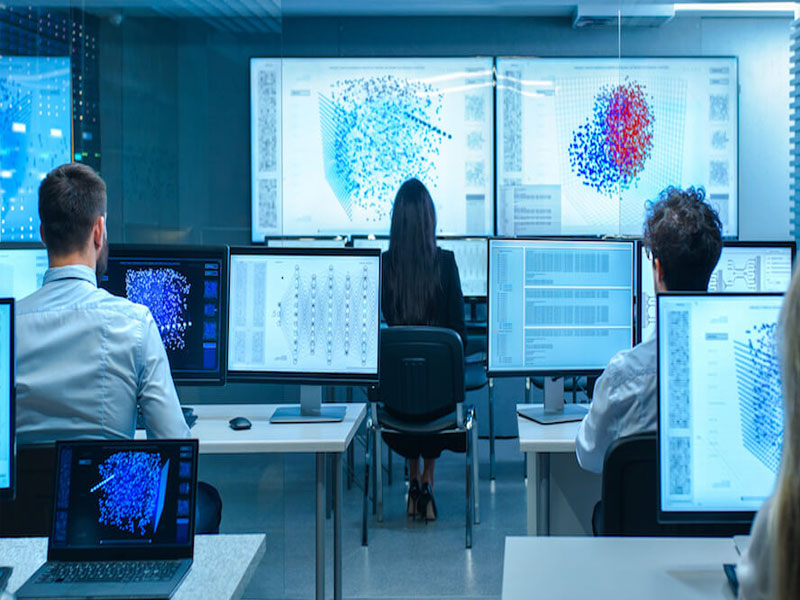Simplifying patent analysis with Artificial Intelligence
SOURCE: BBNTIMES.COM
NOV 22, 2021

As we know, the importance of patents is immense in all industries.
Amidst today's hyper-competitive landscape, organizations are aggressively acquiring or filing for patents to keep their innovations secure. AI can assist organizations in managing and analyzing patents more accurately.
The analysis of patents is a significant part of IP management today. Competently handled patent analysis is essential for complementing the research and development that has gone into creating a brand-new technology or any other form of innovation, facilitating the procurement and safeguarding of IP rights linked to the said innovation or technology and making strategic business decisions for the long-term. As time goes by, patents keep getting more information-heavy and complex for human analysts to process. The involvement of AI in patent analysis can simplify the task for analysts and other experts. Here’s how AI optimizes the patent analysis process to help your organization:
Handling Vast Volume of Data
As implied earlier, there is a significant increase in the volume of literature data present in patents today. The data is vast in quantity and highly diverse in terms of languages, sources, and formats. Manually analyzing this information can be an arduous task for analysts. The ability of AI systems to work through huge stretches of data to find patterns and important subtexts is vital for organizations. AI’s semantic abilities bring reliability and accuracy in data processing during patent analysis.
Apart from boosting the accuracy and quality of patent searching and analysis, AI-powered tools save a lot of time and, by extension, money for businesses. The process is completed within hours instead of days, allowing human analysts the additional time required to take measured decisions during manual analysis. The above-mentioned semantics come in handy to find documents and statements that will allow the research and development process to be more result-oriented for organizations. This is ensured by increasing the finding of more relevant results with a lower percentage of false positives or junk information.
Increasing Protection Against Litigation
One of the main reasons why organizations carry out patent analysis is to make sure that certain apparently unique technical aspects of their new product or technology do not replicate, or even resemble, any elements found in products made by another organization in the same or another sector. As we know, patent infringements carry heavy legal and financial ramifications for businesses. AI-based analysis systems can detect similarities between the technical information present in your patents and the data included in an existing patent belonging to another organization.
By pointing out exactly what similarities are there in both, AI enables businesses to make the required alterations to their blueprints to avoid the risk of litigation. Initially, organizations may be reluctant to involve AI in their patent analysis processes due to the cost of implementation, time, and personnel required for machine training and other reasons. However, as we can see, AI will only make the analytics of patents easier in an increasingly complicated zone of IP management.
LATEST NEWS
WHAT'S TRENDING


Data Science
5 Imaginative Data Science Projects That Can Make Your Portfolio Stand Out
OCT 05, 2022

Eerily realistic: Microsoft’s new AI model makes images talk, sing
SOURCE: INTERESTINGENGINEERING.COM
APR 20, 2024
80% of AI decision makers are worried about data privacy and security
SOURCE: ARTIFICIALINTELLIGENCE-NEWS.COM
APR 17, 2024
AI Is Set To Change Fertility Treatment Forever
SOURCE: HTTPS://CODEBLUE.GALENCENTRE.ORG/
NOV 06, 2023
AI-empowered system may accelerate laparoscopic surgery training
SOURCE: HTTPS://WWW.NEWS-MEDICAL.NET/
NOV 06, 2023
Here’s Everything You Can Do With Copilot, the Generative AI Assistant on Windows 11
SOURCE: HTTPS://WWW.WIRED.COM/
NOV 05, 2023
Tongyi Qianwen, An AI Model Developed By Alibaba, Has Been Upgraded, And Industry-specific Models Have Been Released
SOURCE: HTTPS://WWW.BUSINESSOUTREACH.IN/
OCT 31, 2023




